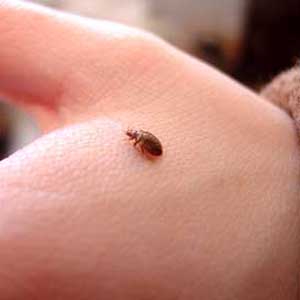Medieval misery as bed bugs return
 Sydney - Chris Dowding picked up a backpack and left the creature comforts of a farming hamlet on Australia's east coast to see the world.
Sydney - Chris Dowding picked up a backpack and left the creature comforts of a farming hamlet on Australia's east coast to see the world.
"For me, the reality of travel came as a bit of a shock," the 36-year-old recounted. "I was bitten by bed bugs in hostels, terrified by 'extreme sports' bus drivers and shoved out of the way by little old ladies in grocery stores."
Bed bugs, a Third World problem just 20 years ago, are now a global scourge - partly because young adventurers like Dowding take advantage of cheap air fares and, as they trek around the world, ferry bed bugs from poor countries to rich ones.
As well as the jumbo jet, the other big factor in the great resurgence is that bed bugs in poor countries developed insecticide resistance and are now colonizing rich countries.
"From the late 1950s to the late 1990s we hardly saw a bedbug in the developed world," said Stephen Doggett, one of the world's foremost experts on the wingless insects. "Now, we see almost exponential growth, almost doubling each year."
Doggett, a researcher at Sydney's Westmead Hospital, has some good advice for travellers.
"Last thing at night, put your bags in the middle of the room because it's less likely you'll get bed bugs in open places," he said. "Pull the bed away from the wall. Look for blood spotting on the crevices of the mattress, particularly near the wall and on the ensemble base - any evidence of that, get yourself another room."
Bed bugs are part of life in Third World countries and people don't bother about them much. Around three-quarters of people won't know they've provided a meal. And even those with an allergy get off relatively lightly - just an itch.
In the rich world, it's a different matter. People are paranoid about bed bugs.
"It's where you are most vulnerable in life and it's understandable the abhorrence you feel," Doggett said. "For a lot of people, it's a mental trauma knowing they've had bed bugs."
Insecticide resistance means it's difficult and time-consuming to deal with an infestation.
And there's the amazing resilience of Cimex lectularius and its tropical cousin Cimex hemipterus - they can go six months without a blood meal.
Bed bugs hide during the day and only come out to feed near dawn. And they even spit an anticoagulant into the wounds their mouths make to ensure blood flows more freely.
The hostel owners that accommodate backpackers like Dowding can no longer claim ignorance about the worldwide reprise of this nasty little blood-sucking arthropod.
In April, at the swish Sheraton Crystal City Hotel in Washington, the US Environmental Protection Agency hosted a three-day international summit on the global phenomenon.
Doggett expects the wave of bed bug-linked litigation sweeping the US will break on other shores.
"No longer can the accommodation industry feign ignorance of the problem," he said. "There have been just too many reports. Many hotelier associations have been very remiss. There's a wealth of research to show there is an upsurge." (dpa)